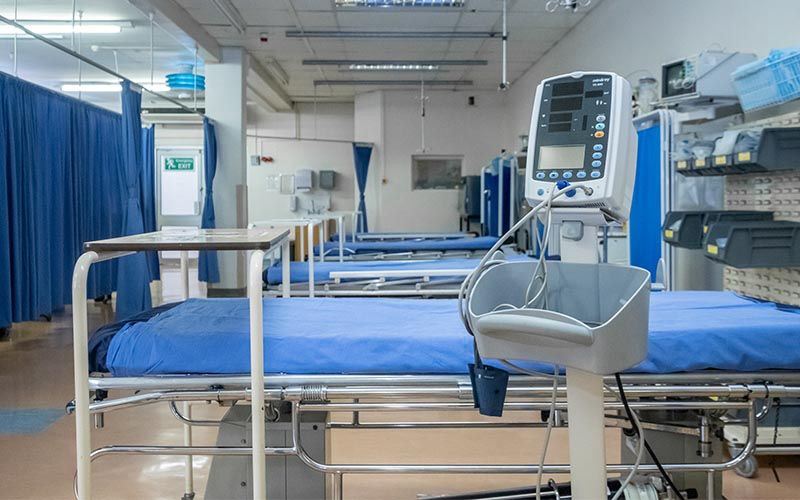IN The Namibian of April 17 2009 Alexactus Kaure argued about abolition of the armed forces. He maintains that ‘the Namibian Army is becoming a black hole’ and that ‘Namibia has no capacity/capability in term of person-power and otherwise to take on South Africa, Angola, Zimbabwe and Botswana’.
The reason he gave is that they are better organised than Namibia. Despite the fact that the increase of the Defence Budget was to address the shortcomings identified by Parliamentarians among others, some people still question its justification. A Member of Parliament was reported saying that the increase in the Defence Budget was a short-term solution which means after addressing the identified needs it will readjust. First let us look at Kaure’s argument that democracies rarely go to war within one another. The main reason why countries go to war is because of their national interests which may include but are not limited to; economic, security or political issues. Often democracy is used as a smokescreen to invade other countries. For example how can a democratic country invade another country to bring democracy or protect human rights while it has friends who are dictators and violators of human rights? When people say democracies rarely go to war, the example mostly given is of Western Europe. However the reason why there is no war between countries in Europe is not necessarily because they are democrats but because of security mechanisms in place which includes alliances. One can argue that the deadliest weapons are in European and North America arsenals. Is Europe not the most democratised continent? Even in Eastern Europe there was no war between former Warsaw Pact member states. When this happened it was solved quickly e.g. brief war between Turkey and Greece. Internal revolt was severely dealt with both in Western Europe and Eastern Europe e.g. the Soviet Union suppressed revolt in Czechoslovakia and Hungary and America’s invasion of Grenada. hSecondly Kaure argued on what he called ‘the practical aspect of his argument that ‘ Namibia has no capability or capacity in terms of personnel power to take on say SA, Angola, Zambia or even Zimbabwe’ and that Botswana is better organised than Namibia.’ He misunderstands issues here. He should know that the NDF adopts a defensive posture. It is not there to attack other countries but to defend the territorial integrity of Namibia. Potential aggression does not necessarily mean neighbouring countries. All the countries he mentions are Namibia’s allies in the SADC Mutual Defence Pact. Threats may emanate from outside the SADC region, and SADC needs to have capacity to deal with that. Kaure also mentions some countries which do not have a military but what he did not mention is what led to this. Some such as Iceland, Costa Rica and Liechtenstein are either members of military alliance such as NATO or have some sort of protection from big powers. Should Namibia enter into agreement with big powers for protection which may lead to them having military bases in Namibia? I bet more Namibians will oppose this than those who oppose having an own Defence Force. If we consider for argument’s sake his assertion about Namibia fighting against her neighbours, the reason he gave is that Namibia has no capability in terms of manpower to take on the countries he mentioned. He did not elaborate what he means or how he arrived at that conclusion. Many would use the formula developed by Ray Cline as cited in Painter (1995) to measure National power as follows: Pp = (C+ E+) X (S+W) where Pp means perceived power, c: critical mass (population plus territory), E: economic capability, M: military capability, S: Strategic purpose and W: will to pursue national strategy. Each element is given a value. A country can compensate inherent weakness with e.g. quality of training and/better equipment or alliances with some powerful countries. Israel is a small country with a small population but with a high military reputation. Military capability includes manpower (or personnel); weapon effectiveness; and logistic and infrastructure support. Other elements include organizational quality and strategic reach.Kaure seems to contradict himself since he argues that the defence budget is a black hole. He should know that it takes money to educate, train and equip the Defence Force to achieve reasonable capability. If the NDF is inferior in term of organisation as he alleges, the problem can be remedied by educating the military leadership and commanders at all levels which costs money!During the Battle of the Bay of Pigs in 1961, when the Americans organised a group of Cuban exiles to topple Fidel Castro, the invading forces were defeated despite having the backing of the a Super power. Vietnam also prevailed over the USA despite technological inferior economy and weapons in comparison with the USA. Also maintaining the military is not necessarily to fight actual wars but to deter the potential aggressor(s). It is true that the military is a non-productive force, but it is an assurance of national sovereignty, peace and security. We live in a dynamic and unpredictable world. Many Americans and other people could not predict that terrorists would attack one of the most powerful nations in the world on 11 September 2001 and it was difficult if not impossible to predict the current economic downturn. Namibians, including Kaure, cannot predict that no country will attack Namibia within 5 years. To say we do not need the military now is unrealistic. The fact is that military capabilities takes time to develop and cannot be switched on and off like torchlight. It must be nurtured and maintained. Col Hafeni HamunyelaSenior Staff OfficerMinistry of Defence, Windhoek(This is his personal opinion)NOTE: This letter has been shortened – Ed
Stay informed with The Namibian – your source for credible journalism. Get in-depth reporting and opinions for
only N$85 a month. Invest in journalism, invest in democracy –
Subscribe Now!










